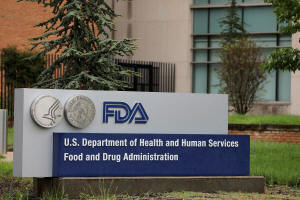US FDA investigating safety risk of CAR-T cancer therapies
 Send a link to a friend
Send a link to a friend
 [November 29, 2023]
By Pratik Jain [November 29, 2023]
By Pratik Jain
(Reuters) - The U.S. Food and Drug Administration (FDA) said on Tuesday
it was investigating cancer therapies made by Gilead Sciences, Johnson &
Johnson, Novartis and others over the risk of hospitalizations and death
due to a serious safety issue.
The FDA said it had received reports of patients developing a type of
T-cell blood cancer after being treated with genetically modified cells
known as chimeric antigen receptor T-cell therapies or CAR-T.
The treatment generally involves extracting disease-fighting white blood
cells known as T-cells from a patient, re-engineering them to attack
cancer and infusing them back into the body.
Since 2017, six CAR-T cell therapies have been approved by the FDA and
all are for the treatment of blood cancers, including lymphomas and some
forms of leukemia.
Maksim Mamonkin, a CAR-T expert at Baylor College of Medicine's Center
for Cell and Gene Therapy, who oversees production of CAR-T treatments,
said in clinical trials, secondary cancers are "definitely not something
that we routinely see or something that we expect."
"Obviously, when you start treating thousands of patients with
commercial products, that may become an issue just by chance."

Mamonkin said T-cell cancers can occur after patients receive other
cancer treatments such as chemotherapy. If pre-cancerous cells were
inadvertently collected and used to make CAR-T treatments, that could
result in secondary cancers.
Dr. Julie Gralow, chief medical officer of the American Society of
Clinical Oncology, said, “Based on the available data, the risk of
T-cell malignancies due to CAR-T cell therapy appears to be low."
While such cancers have occurred in people who have received CAR-T
therapy, she said the causal relationship — whether by chance or caused
by the therapy — needs to be investigated.
Approved cancer therapies in this class include Bristol Myers Squibb's
Breyanzi and its partnered therapy, Abecma, with 2seventy bio.
[to top of second column]
|

Signage is seen outside of the Food and Drug Administration (FDA)
headquarters in White Oak, Maryland, U.S., August 29, 2020.
REUTERS/Andrew Kelly/File Photo
 J&J unit Janssen and Legend
Biotech's Carvykti, Novartis AG's Kymriah, and Gilead unit Kite's
Tecartus and Yescarta are also a part of the investigation.
Shares of Gilead closed down 0.6% at $74.51 on Tuesday. Legend
shares fell 2.6% to close at $59.99. Shares of Autolus Therapeutics
declined 4.8% to end at $4.55.
RBC analysts in a note said the concerns could be higher for
Novartis' Kymriah, and extremely rare for all the other marketed
CAR-Ts.
However, Mamonkin said the higher number of cases involving Kymriah
could be related to the fact that the treatment is more commonly
used in older adults, who are more prone to cancer.
Novartis said in a statement that there is no evidence to date that
would change its confidence in Kymriah’s benefit or risk profile and
that it has not identified a causal relationship between Kymriah and
secondary malignancies.
The company added that it is "fully committed to patient safety and
will continue to work with the FDA."
Gilead said it had cooperated with the FDA on its request for an
analysis of the company's data, adding there was no evidence that
treatment with either of its two therapies had a causal role in the
development of new malignancies.
"We are confident in the overall safety profile of both Tecartus and
Yescarta," Gilead told Reuters in an emailed statement.
J&J and Bristol Myers did not immediately respond to requests for
comment.
(Reporting by Pratik Jain and Christy Santhosh in Bengaluru, and
Michael Erman in New York and Julie Steenhuysen in Chicago; Editing
by Krishna Chandra Eluri, Maju Samuel and Matthew Lewis)
[© 2023 Thomson Reuters. All rights
reserved.]This material may not be published,
broadcast, rewritten or redistributed.
Thompson Reuters is solely responsible for this content. |